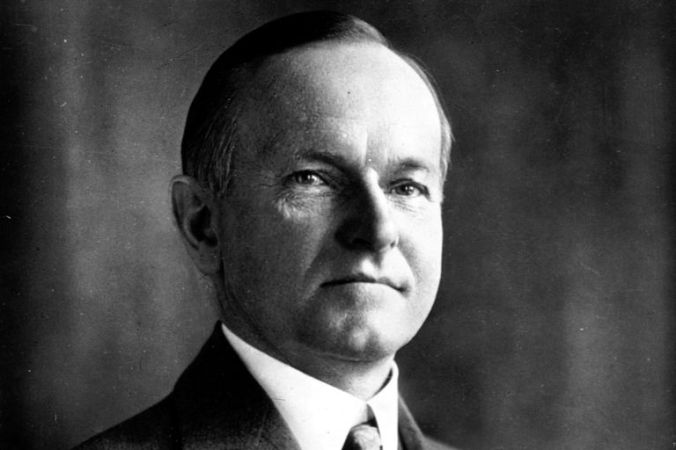
Calvin Coolidge (1872-1933)
“I have seen a great many attempts at political strategy in my day and elaborate plans made to encompass the destruction of this or that public man. I cannot now think of any that did not react with overwhelming force upon the perpetrators, sometimes destroying them and sometimes giving their proposed victim an opportunity to demonstrate his courage, strength and soundness, which increased his standing with the people and raised him to higher office. There is only one form of political strategy in which I have any confidence, and that is to try to do the right thing and sometimes to succeed” (Coolidge from The Autobiography, p.189).
“The professionals in Boston soon discovered that they could teach him very little regarding politics as a fine art. He had a sleuth’s instinct for learning what was going on, and he knew how to keep his fences mended…” Judge Field said this of his former law clerk, Coolidge’s “greatness did not lie in his contacts with men. But as a politician he was brilliant. He seemed to know what people were thinking and how they would act…He remembered all the little personal details which count so much. An extraordinary number of extant letters, all brief, give evidence of his essential humanity, of his interest in birth and marriage and death, in all that people say and do…” (Fuess, Calvin Coolidge: Man From Vermont, 481).
“The purely ‘political’ politicians were baffled. Here was a man with no popular qualities, nevertheless immensely popular; an amateur in political strategy taking every game from the professionals.” (Preston W. Slosson, “Calvin Coolidge: His Place in History,” Current History, October 1930, p.6).
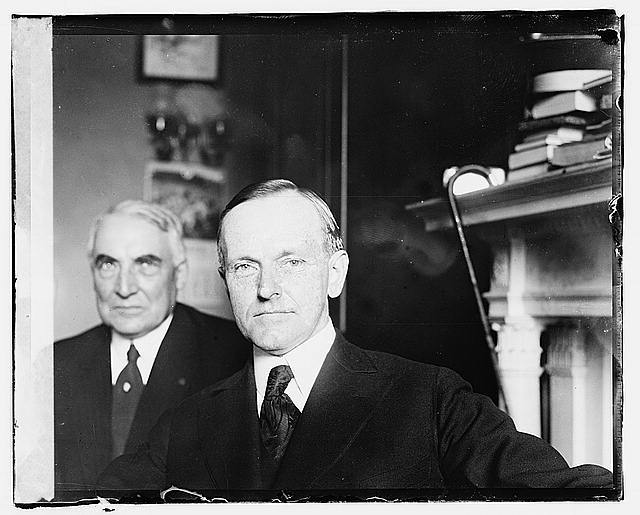
“…As Mr. Coolidge himself has observed, ‘It is not always the one who can speak that appeals to the people, and of the speakers not always the eloquent.’ A Boston Democratic politician, who was watching the contest, said, ‘That Yankee twang will be worth thousands of votes to Calvin Coolidge.’ Under the first State-wide test, there began what became, year after year, a phenomenal series of demonstrations of the popular leaning toward this man. Aside from his unusual personality, two of his methods of campaign solidly commended themselves. He was positive and constructive; he did not attack his opponents, and he spent little time in decrying their proposals. He made a thought-out, concentrated appeal to the practical intelligence of the people. The people listened. In one town there were two halls of different size. The question was, which would be right for the Coolidge meeting. One citizen urged the big hall. A second citizen said, ‘He won’t fill it.’ To which the other replied, ‘He won’t empty it.’ By primary day, the people of the State had a clear and stimulating notion of a new leader who could precipitate and crystallize the essentials of public policy. The nomination was won by a substantial majority. When it came to the election, he won by 52,144. The next year, the figure was 84,930; and for his third year as Lieutenant-Governor, the majority was 101,731…” (Woods, The Preparation of Calvin Coolidge, 114-5).
“I like him because I don’t know why I like him; because he don’t seem to care whether I like him or not; because he’s the only one of his species, which I didn’t know existed; because he’s not like other politicians, doesn’t give away cigars, kiss other babies than his own or tell entertaining stories; because he gets by on merit, not personal charm, because to him a political job is a business opportunity; because in easy English, he F. O. B.’s the freight” (FOB = ‘Freight on Board,’ i.e., he identifies who is responsible for the costs involved at every stage of the process leaving responsibilities defined not ambiguous, “A prominent man in Washington, a good judge of men…” quoted anonymously by Washburn in 1924, Calvin Coolidge: His First Biography, 108).
“In his campaigns he had always managed to win support from among those who were separated from him by party, race, and religion. Disinclined as he is to the give-and-take of personal conversation, in meeting people at large he always expresses the villager’s sense for hospitality including everybody. Living and working in a small city, he was readily inclined, when politics opened the way, to reach out toward all sorts. Thus while the people of the State found in his approach nothing of the ‘glad-hand’ type of office-holder, they did sense in him always a neighbor-like feeling.” (Woods, 121).
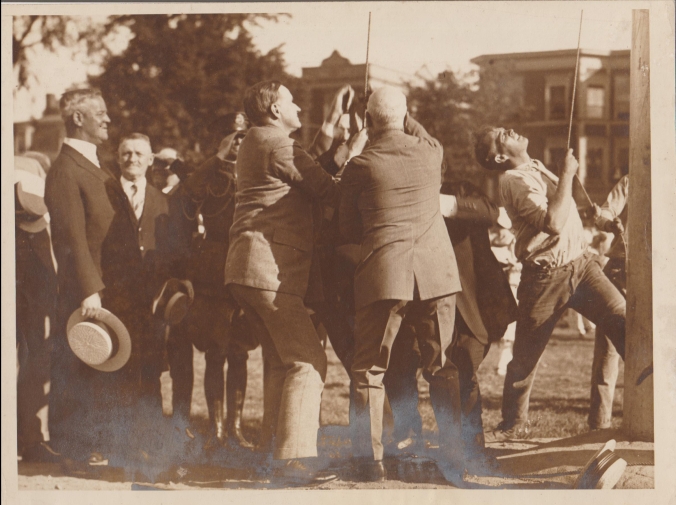
President Coolidge helping raise the flag at Lynn, Massachusetts, 1925.
“The Republican board of strategy laid out a plan of campaign; but the candidate [Coolidge] disregarded many of their suggestions. He knew that he must get Democratic votes to win. He went after them personally, rang door bells, talked it over with the voters and made a clean-cut, direct appeal to all the people, regardless of parties” (Hennessy, Calvin Coolidge, 58).
“While for several years the number had been gradually increasing of those who understood and respected his ability, he was still not well known by the mass of the voters. As always before, he had been somewhat independent of ‘organization’ approval and support; and there were serious divisions among party leaders. The opposing candidate, already familiar by name throughout the State, carried on an aggressive campaign of advertising through the newspapers. The National Administration supported him. The result was that Mr. Coolidge’s vote was reduced much below that by which his predecessor had been elected. It would probably have been still smaller but for the exercise of Mr. Coolidge’s remarkable sagacity as a political strategist. He followed out the method, originally practiced in Northampton, of making personal calls on many persons of influence locally. He appealed to the western part of the State as its first candidate since 1905. There had always been a Coolidge Democratic following in the Connecticut Valley, and in this campaign it held strongly to him. The sentiment of every section of the State seemed an open book to him, and the campaign managers were surprised after election by the accuracy of his predictions as to the detailed vote” (Woods, 137).
“He devoted more time to the office [Mayor] than any of his predecessors and gave his personal attention to every department, visiting all the schools, public and private, and showing a personal interest in the welfare of every city employee” (Hennessy, 59).
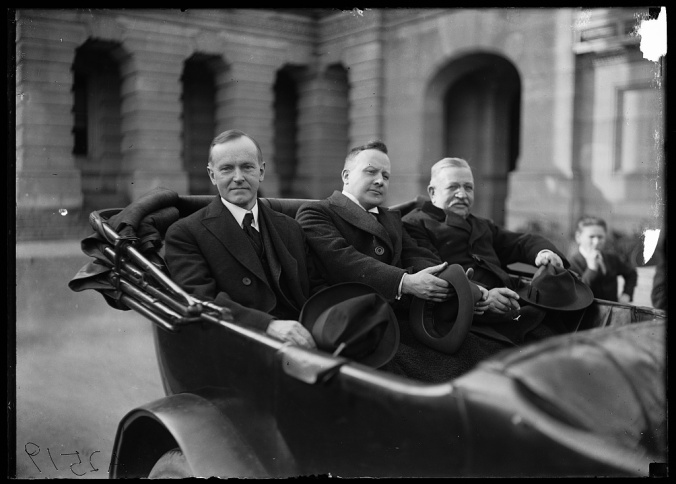
“Governor Coolidge, both as a governor and before, had the faculty of doing, in a quiet and unostentatious way, a lot of favors for people. We representatives and senators have many appeals for this and that from constituents. Governors are always affable, they give us the glad hand and–promises. Coolidge would hear us with little comment–and if favorably impressed would merely say, ‘I will see, Representative, if I can do anything on that,’ and generally the matter would be attended to at once. It was his habit to make the next visitor wait while his secretary was called and the wheels were set in motion on the thing wanted. Such treatment was so unusual in an office-holder that Mr. Coolidge soon had a lot of smaller ‘Frank Stearnses’ rooting for him” (Sawyer, Calvin Coolidge: President, 63).
“The real fact about Mr. Coolidge is, and always has been, that he holds the political philosophy which is rooted in the best of the American constitutional tradition, but in a spirit which keeps him always advancing step by step under his own initiative and always hospitable to well-considered proposals of human betterment as they are brought forward by others” (Woods, 139).
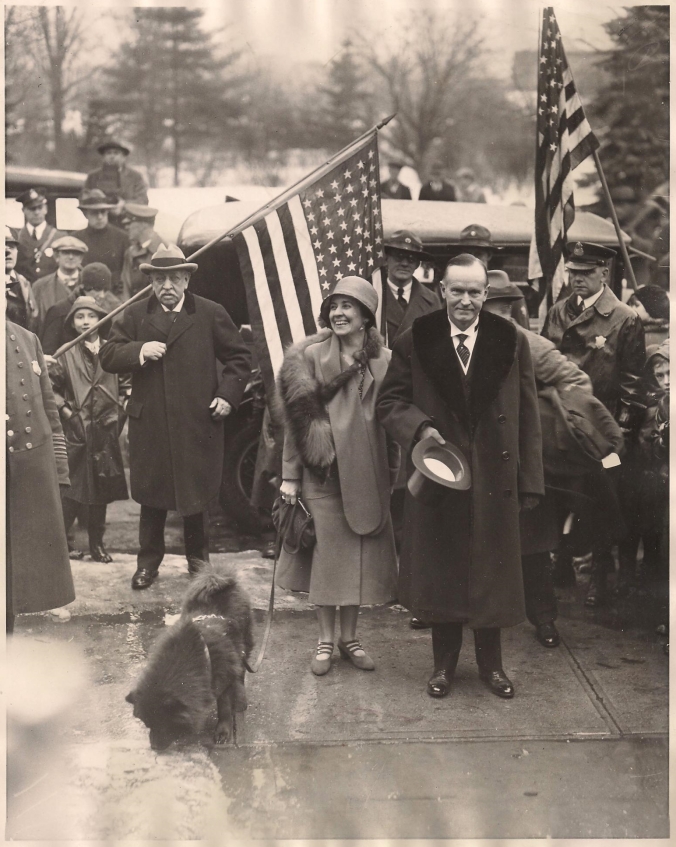
“A young man had been appointed as a pilot in Plymouth Harbor. There was some doubt among shipping men of the wisdom of that appointment. The appointee was a young man of good character, but his experience with the channel had been confined to small vessels, such as fishing boats. He had had no experience whatever with large steamers. Therefore, establishments which received cargoes by such steamers in Plymouth were apprehensive. One day the head of a large firm interested in this situation appeared before the Executive Council in relation to this appointment. He remained in the Council chamber for some time. When he came out, a man who was waiting for an opportunity to see the Lieutenant-Governor [Coolidge, at the time] asked him: ‘Is Coolidge in there?’ The man’s reply was: ‘There was a man in there that looked something like his picture, who said nothing, and apparently was not paying much attention.’ The same two men met a fortnight later, and the shipping man said: ‘That man Coolidge is a star. I thought he was paying no attention. I was wrong. I find that he wrote at once to Plymouth to learn all the facts, he went personally to the wharves, talked with the pilots of Boston Harbor, learned about the duties of a pilot, and he now has worked out a plan for correcting the troubles at Plymouth’ ” (Whiting, President Coolidge: A Contemporary Estimate, 110-111).
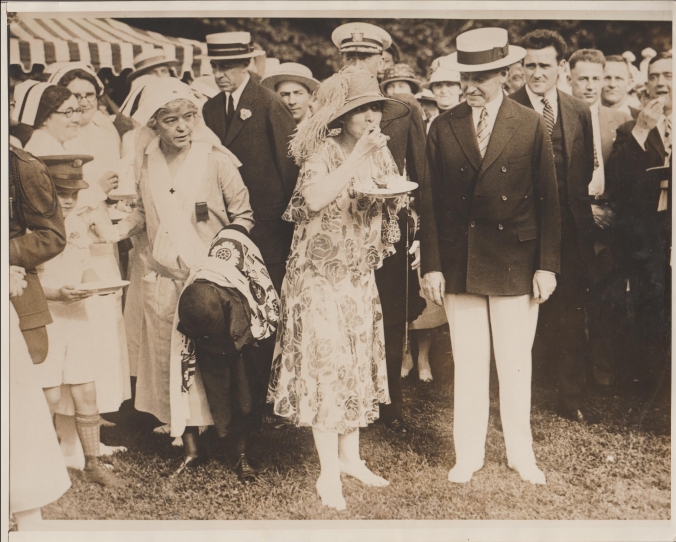
“…There have been few if any who, more fully than he, have subordinated party claims to the public good. He has, from the beginning of his public career, like Theodore Roosevelt, had no hesitation in working with the so-called ‘practical’ politicians when they were going his way; and, as a party leader, has given them some measure of recognition. But his appointments under the reorganization, as well as his appointments generally, will show that for all key positions men of recognized exceptional fitness have been sought; while even when, with some minor posts, political considerations may weigh more heavily, they still have had to yield to predominant standards of capacity and efficiency. As a matter of fact, it is the testimony of State House employees that Governor Coolidge will be especially remembered for promotions among their ranks on the basis of merit and without regard to party. It is certain that no governor was ever more free of racial bias in his appointments…In many ways, which reveal themselves only after searching inquiry, one finds that he was constantly giving proof of continuous thought and care for human need. He would, on a public occasion, go out of his way to surprise a person, who had consulted him weeks before, with a practical suggestion that would greatly promote some measure of social betterment. And to those who were near him it was an expected experience to be commissioned to provide needed help to some individual in difficulty without disclosing the source of it” (Woods, 170-1).
“He could, at an occasion that demanded a speech from him as a dignitary who had just broken the ground for the cornerstone of a public building, think briefly, then point to the new sod and, in the voice of Vermont, curiously intone, ‘There’s–a–mighty–fine fishworm,’ and go hence, leaving many people thunderstruck” (Rogers, The Legend of Calvin Coolidge, 169).
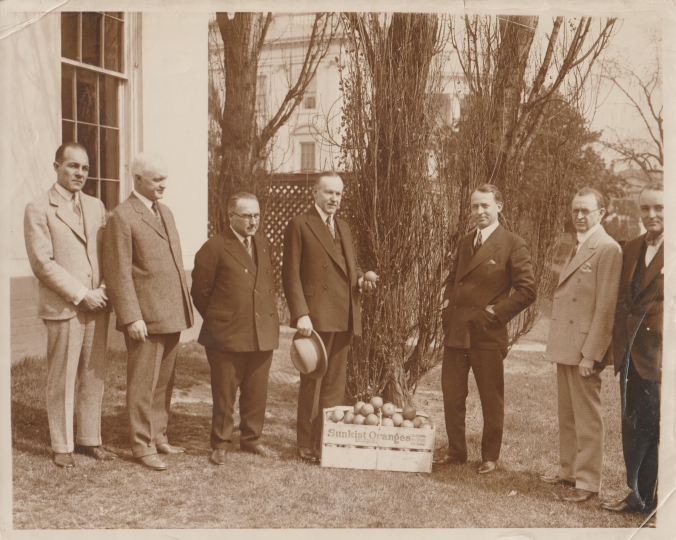
“His own personal attitude with regard to the perquisite side of politics was strongly reinforced by the fact that his nomination and election had come of a spontaneous momentum of the people, and he bounden to no one except to the people as a whole to serve them according to the clear dictates of his judgment and conscience. It was of the profoundest significance for the future that his Washington career could begin in so complete an atmosphere of freedom, so far as political claims were concerned. There were no Massachusetts entanglements — no political hangers-on, no financial interest to be rewarded, no friends of the kind that would be looking for something. It was a radiant instance of a man whose actual front to the people, and not any influence, in the sense of control for better or for worse, beside, behind, or beneath, had made him a national figure…Two classes of men chafed at this result. One was represented by the powerful group of Senators who secured the nomination of one of their colleagues for President, and were certain they would nominate another for the vice-presidency. Taken at his best, they resented it that this man had not gone through a series of preparatory stages at Washington — had perhaps not achieved seasoned respect for all the past and existing structure of the intrinsic and collateral processes of federal government. The other group was made up of certain reformers who, from meager reports, satisfied themselves that Mr. Coolidge, in his whole outlook, was rather narrowly a man of the past. The result was another of the remarkable instances which our national history affords, of the way in which the American people, by a sound instinct, give their confidence before having in their possession what might be termed complete positive proof. There have always been these two opposite groups of doubters; they will continue to doubt” (Woods, 187-188).
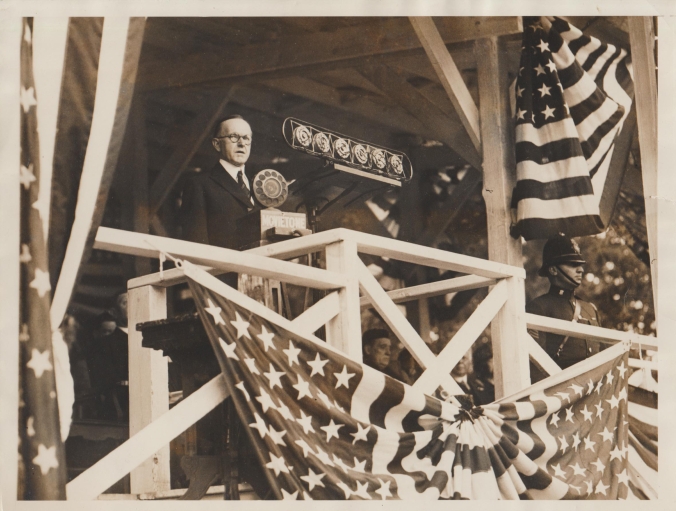
President Coolidge speaking at Gettysburg, Memorial Day, 1928.
“If you can not stand criticism, you had better get out of public life” (Coolidge, recounted by Joel T. Boone in “The Wrong ‘Aye, Aye,’ Good Housekeeping, April 1935, p.40).
“The original plan of President Harding that Mr. Coolidge should sit with the Cabinet was certainly suggested largely by the Vice-President’s personal qualities and by his successful previous administrative experiences. The hearty response from the public to this proposal showed that there was a widespread conviction that Mr. Coolidge had qualified as one of the all-around ablest public executives in the country, a fact which was recognized by the press” (Woods, 189).
“Also, he could walk, wordless and blank, through miles of glassed-in tropical fruits and rare, exotic flowers all blooming in spite of the young strength of a Delaware winter, to point suddenly to a familiar growth with the single word, ‘Bananas.’ Such occurrences as these impelled thought on the intellect of a man manifestly able and opinions were various. Public servants, however, who encountered this mystery, beheld a method in the fabric of their experiences with Mr. Coolidge. A former ambassador who, at dinner with the President, discoursed pleasantly but at length touching his intimacy with potentates, was abashed to hear, when he had concluded, Mr. Coolidge startlingly observe: ‘Grace, the dog’s run three times around the table‘ ” (Rogers, 169-170).
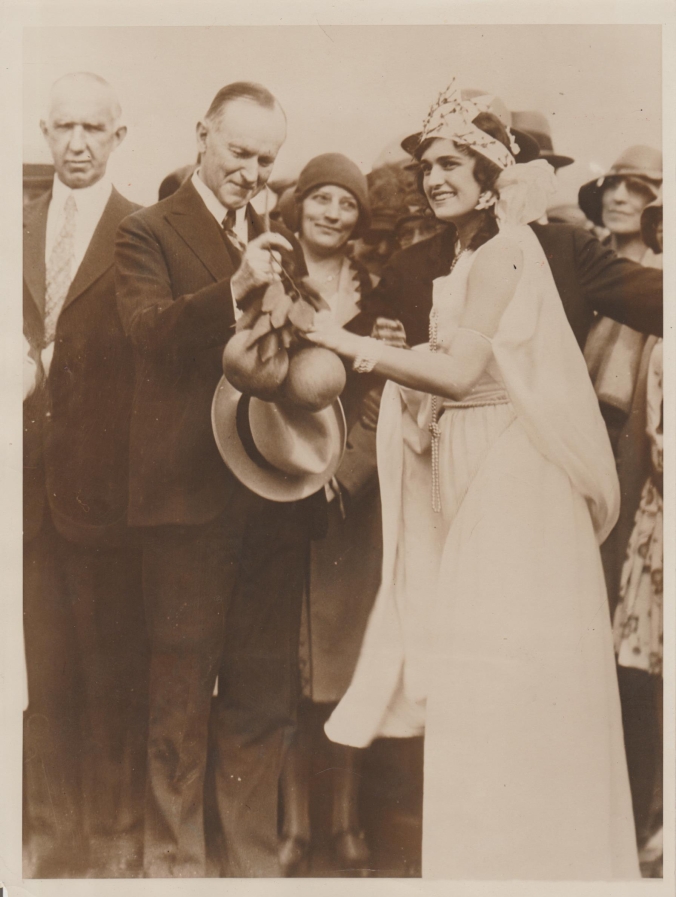
“He did, however, exercise to the full his highly developed faculty for listening. Indeed, his whole experience in the vice-presidency was utilized by him as a special course in education; just as every phase of his previous career had been…His astonishing memory and his instinctively and irrepressibly projecting mind kept gathering up all these threads and shaping them over into a characteristic executive program of his own” (Woods, 191).
“Of course, a few individuals who pretended to understanding, and who proclaimed the universal eminence of Mr. Coolidge, were occasionally subjected to mockery when, almost consciously, the President refuted them. Once such, talking to a friend aboard the Mayflower, with the Chief Executive only a few feet distant, pointed to an airplane that had flown into their ken and declared that so excellently wise was Cal, and so thoroughly conversant with everything in matter, that he could without doubt identify the tiny air-swept blot as a land or sea plane. There fell a little pause during which the President drew near. He looked at the plane. Then he said to his admirer, ‘Guess that gull must be dead. It hasn’t moved for quite a spell.’ It was extraordinary” (Rogers, 172).
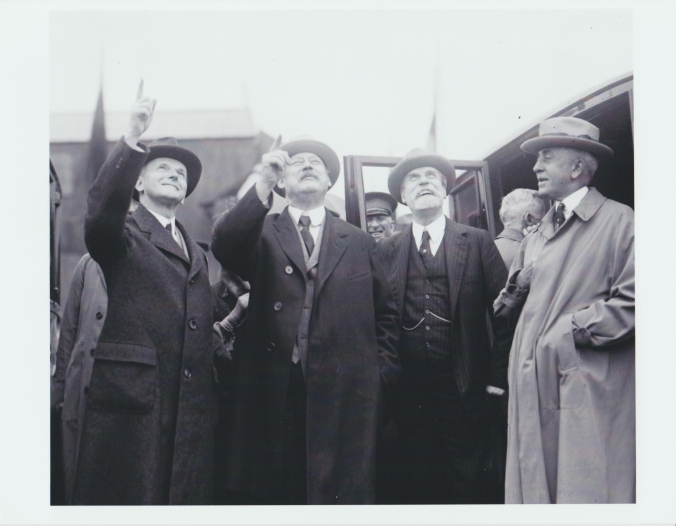
“President Coolidge is a very unusual administrator — as all who have watched his course in the White House agree. But his title to leadership of exceptional quality in the presidential office is also becoming increasingly clear…He holds that ‘leadership should not be by force, but by service’…But we are told that he has fallen short because Congress has so little followed his lead. No one has ventured to indicate how any one in his place, under the chaotic circumstances, could have secured the cooperation of Congress. One sort of man might have sought to utilize on a large scale the leverage of government patronage; another might have thrown down the gauntlet to Congress as a whole, and to recalcitrant Republicans, whether radical or conservative. Neither of these methods goes with Mr. Coolidge’s type of leadership; and no one can say that either would have been more productive of results” (Woods, 268-9).
“And yet what lay behind! Silent, he would sit at table while guests chatted with pleasant excitement about the expected baby of a popular and well-known lady of the Capital, and, as they wondered when the happy day would be, announce the exact date and resume his meal, his mind fathoms down again in its eternal sub-surface activity upon policy and action. He knew everything that took place in Washington, but that he did so failed vitally to amuse him. He had never seriously considered amusement in his life” (Rogers, 172-173).
“One member of the Cabinet is reported to have said after their first meeting under Coolidge…’How could we have sat twice a week with this man for two years and never have known him? We can see that it is up to us to get right out and hustle’ ” (Fuess, 323 n8).
“Meanwhile, no shadow of doubt can be cast upon the marvelous results he has attained by his quiet and all the more effective appeal, over the heads of Congress, to the country. There is an achievement here that would have increased the power and distinction of any of the Presidents…He stands in a position of peculiar authority which he has not only vindicated by his worth, but has confirmed by his power of generalship” (Woods, 270).
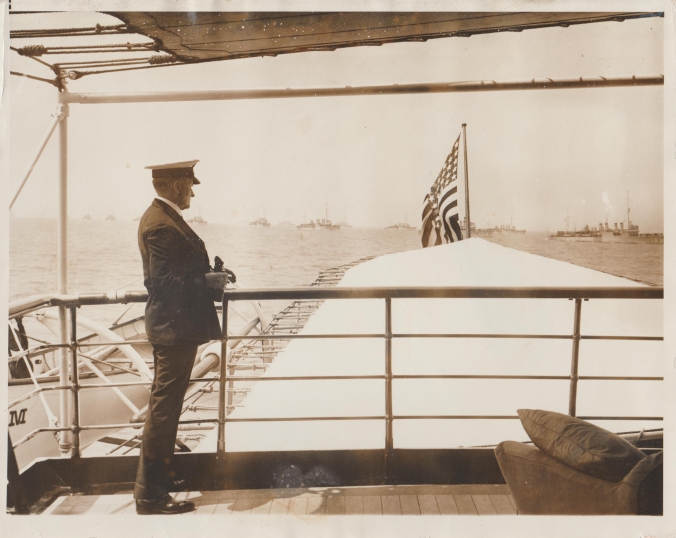
President Coolidge reviewing the combined Atlantic and Pacific fleets aboard the Mayflower.